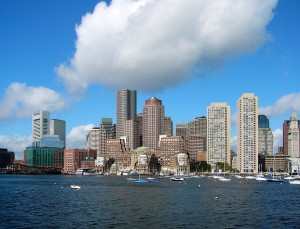
It’s a pleasant feeling when you walk by something that you’ve seen before on a movie screen. It feels larger than life, immortalized. When you get that feeling in Boston, it’s usually because you’ve arrived at the place where someone in the movie either killed someone, was killed by someone else, or was carrying out some other evil deed. At least, that is the way that American film depicts Boston. Despite how inaccurate it may seem, this image has given rise to a sort of alternate-reality city, a “Movie-Boston” that is filled with crime, murder, and scores of good-hearted blue-collar guys just trying to make it out alive.
It’s entertaining enough as fiction, but if you buy into the belief that film offers a realistic representation of how we view our world, there are some serious issues with how the world views this city. If asked to name a recent list of films about Boston, you’d probably receive the usual suspects: The Departed, Mystic River, Gone Baby Gone and maybe, if you’re lucky, Good Will Hunting (and even Hunting isn’t the most glamorous look at the city). The only movie that comes to mind as taking a positive view of Boston is the Jimmy Fallon debacle Fever Pitch, but that film may actually be more grisly than the violent ones.
Of course, like any American city Boston has its share of bad areas; bad things do happen in Dorchester, Charlestown, and Southie. But are those places actually any worse than West Baltimore or Compton? Why is it that they seem to overtake the rest of the city as a focal point when people make movies about Boston?
Interestingly enough, crime statistics seem to show that Boston is not really that dangerous when compared to other areas of the country. The homicide rate in the city is at it’s lowest since 2003, and as of 2008 the overall crime rate is lower than that of Philadelphia, Nashville, Milwaukee and Toledo. These numbers aren’t exactly staggering, and they certainly don’t imply that what Boston should be known for is its criminal aspect.
With these statistics in mind, there must be another reason that Boston has been branded with this reputation. A possible theory is the American love affair with the lower-middle class, which is the bread and butter of Boston story-telling. A calling card second only to the amount of crime in these films is the fact that they seem to exclusively revolve around the lives of blue collar citizens, people who struggle to get by on the day to day. There has always been a certain romanticism surrounding this kind of life and the struggle to rise from “rags to riches”, that dates all the way back to the Horatio Alger stories of old.
Boston may be the ideal city to depict this kind of story. New York, Los Angeles and Chicago have all been used in this role in the past, but now seem tainted by overuse. They may seem too familiar to most Americans to really offer a glimpse into a dirty, hard working world. Boston is unique in this respect because while it is still a major American city, it doesn’t have the instant recognition of the other three. There is no Empire State Building, no Hollywood sign. No Sears Tower overlooking everyone. The city’s most identifiable landmark is a baseball stadium, and there is no truly discernible skyline that the average person could recall. However, Boston is also in a position where it is still easier to imagine than smaller working cities like Pittsburgh or Cincinnati. It’s unique in that it seems like a place where these stories could realistically happen because it is just unknown enough to still capture the imagination.
But how does Movie-Boston affect actual Boston? It’s fairly simple to assume that most people who see a film like The Town inside the Boston city limits are going to chuckle at some of the things that seem totally authentic to people outside of Boston. Although other cities such as LA and New York have grown tired of being presented as crime capitals of the world, Boston seems to invite the attention.
Shortly after Martin Scorsese chose to primarily film his Boston crime opus The Departed in New York City for the tax breaks, the state of Massachusetts implemented a tax break of up to 25% for film productions in Massachusetts. According to a Boston Globe article from 2008, one of the primary reasons for this tax break was that it offered free advertising for the state of Massachusetts, primarily, the city of Boston. It’s a great opportunity to put the state on display.
It will take time to see whether this tax break will lead to an influx of different styles of films set around the Boston area, or if they will continue to produce more of the same. The archetype may be difficult to break because of how much of a character Boston has become, but there have been small glimmers of change in films like 21 and David Fincher’s upcoming The Social Network, both of which take place in the city but portray it in a very different light than Ben Affleck does. It’s a small sign that one day Boston and Movie-Boston may finally come together and become one in the same.
